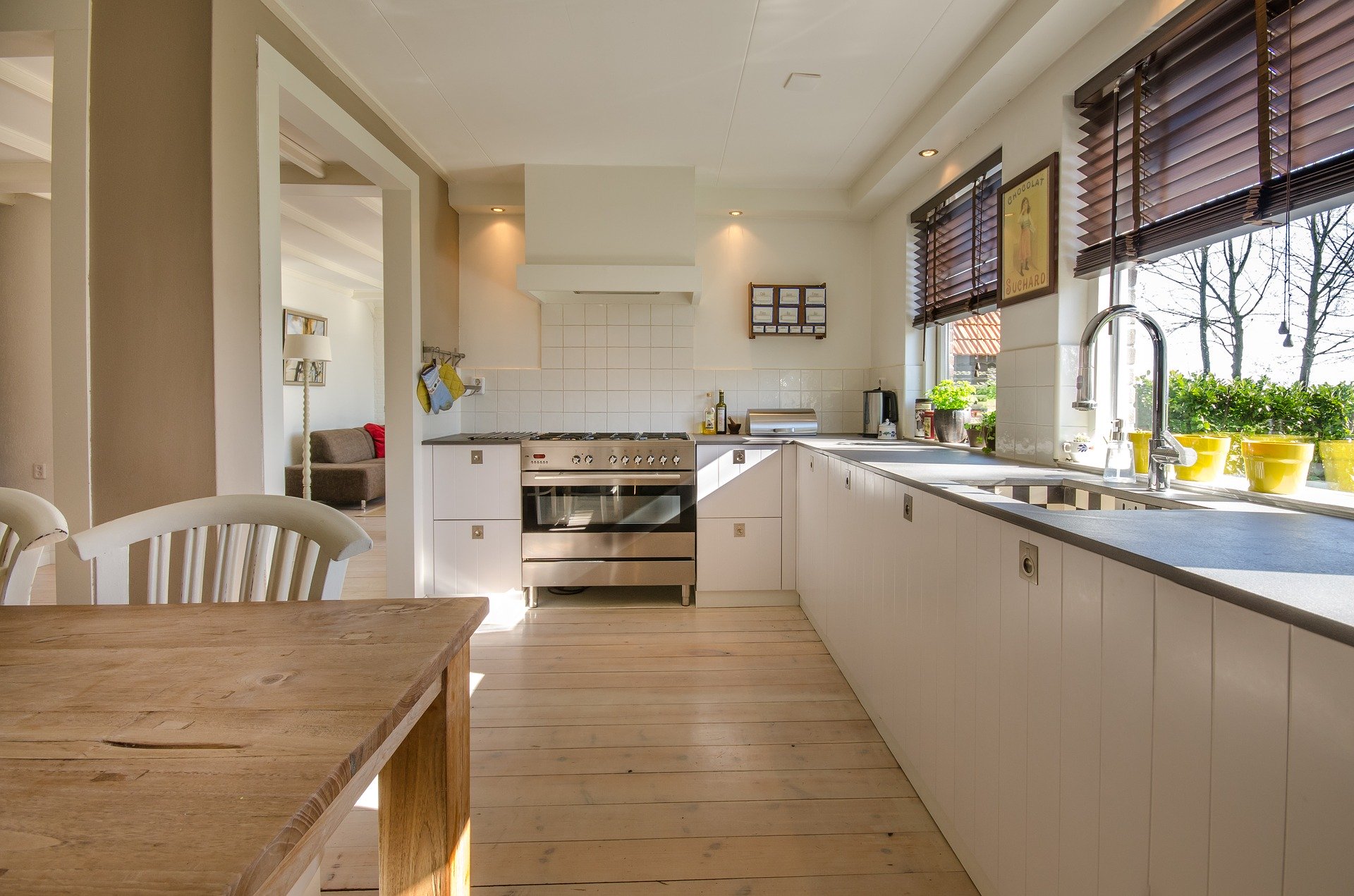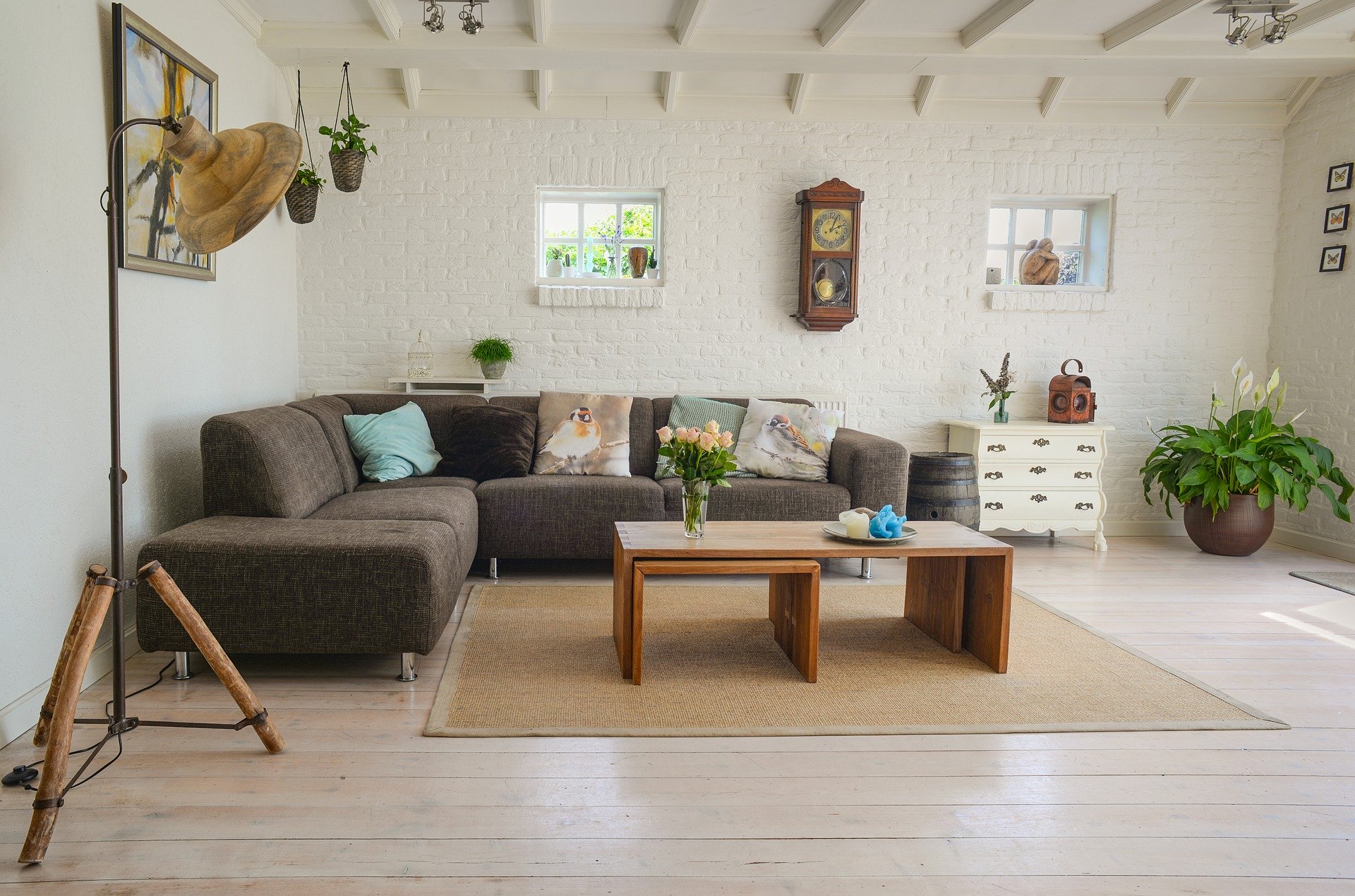
Buying your first home is incredibly exciting, and maybe just a little bit scary. This authoritative first-time buyer guide will help you every step of the way.
Buying a house or flat is a complex process – especially for the uninitiated. This guide takes you step-by-step through the entire buying journey, from saving for a deposit right through to often forgotten costs, in this first-time buyer guide.
Here is everything you need to know:
- Save a deposit
- Mortgages
- First-time buyer schemes from the Government
- Stamp Duty
- Other costs
- Find a property
- Put in an offer
- Exchange contracts and complete
Before you start in earnest, make sure that buying a house or flat for the first time makes better emotional and financial sense than renting because it will probably be one, if not the most expensive purchase, you will make.
Consider the pros and cons of each option before you start the home buying process and remember to factor in the ongoing costs of maintaining the property once it's yours.
If you have decided that purchasing a house or flat is the right option, you will need to work out your budget. This means spending some time on your finances.
Save a deposit
You need to establish how much cash you can put towards the cost of a new home. Generally, the bigger your deposit, the better mortgage rates you will be offered, and the lower your monthly mortgage payments will be.
You should try and save a minimum of 10% of the cost of the property to obtain a mortgage (although some lenders do offer deals for a 5% deposit). A deposit of least 25% will allow you to access the best deals.
It is worth saving as soon as possible. Research by housing charity Shelter suggested that young families need to save for 12 years to build up a 20 percent deposit to buy a house or flat in England. The figure jumps up to nearly 26 years in the capital, London.
Mortgages
Unless you are in the position to buy a property with cash, you are going to need a mortgage.
Simply put, a mortgage is a loan from a bank or building society against a property. The borrower has to pay back the loan in addition to accrued interest.
This may all sound daunting, but it is the case for most first-time buyers and the more research you do, the better.
You can learn more about mortgages by searching for the best mortgage rates and mortgage deals online, surfing mortgage comparison websites, such as Zoopla partners uSwitch, and reading online news and guides on mortgages.
Discuss with friends and family and contact banks and building societies about the mortgages they offer. It's also worth speaking to a recommended mortgage broker who might be able to access more competitive deals not readily available on the open market.
There are several types of mortgage brokers. A whole of market broker will consider all the mortgages available from lenders. They often charge a fee for their advice. However, some mortgage brokers will only provide advice based on products from a particular selection of lenders.
Some mortgage brokers that operate through estate agents may offer restricted advice, and mortgage advisers at banks or building societies will only provide information on their own products. All mortgage brokers should be listed on the Financial Conduct Authority register.
The type of mortgage you opt for will depend on the size of your deposit, your attitude to risk and your view of how interest rates might change in the future.
Lenders also have rigorous checks in place post the 2008 credit crisis to ensure that you will be able to keep up with your mortgage payments, particularly if your circumstances change or interest rates rise.
You will need to show proof of your income and outgoings, such as household bills and other living costs. You will also need evidence of your financial profile, such as bank statements and payslips.
You should secure an agreement in principle from the lender to speed the buying process up further down the line. It is not a guaranteed offer but it shows estate agents that you're a serious first-time homebuyer.
There is an array of costs associated with a mortgage. As well as making monthly repayments, there can also be an arrangement fee and valuation fee to set-up the loan. Changing interest rates can also impact how much you pay, depending on what type of deal you are on.
Different types of mortgages
Here are some of the more common types of mortgages:
Fixed-rate mortgage
A fixed-rate mortgage means that the interest rate will stay the same for a particular length of time. Once the term comes to an end, you can expect to be transferred to the lender’s standard variable rate (SVR).
The benefit of a fixed-rate mortgage is that you have the security of paying the same amount monthly regardless of whether your lender’s SVR or the Bank of England Bank Rate changes.
This mortgage is a good option for long-term financial planning. Many first-time buyers prefer the safety and stability that a fixed-rate mortgage can bring.
However, fixed-rate mortgages tend to be more expensive than mortgages pegged on variable rates because you pay a premium for that extra peace of mind.
In addition, you would not be able to capture any of the benefits if interest rates were to drop – which, in this current climate, is unlikely.
Tracker mortgage
A tracker mortgage typically follows the Bank Rate, the benchmark interest rate set by the Bank of England, for a certain period. It often tracks the Bank Rate by a particular margin.
It is a type of variable rate mortgage so your monthly repayments can change. If the Bank Rate increases, so will your mortgage repayments.
When your deal draws to a close, your mortgage will likely be swapped on to the lender’s SVR.
Discount mortgage
The interest rate on a discount mortgage is tracked at a discount to the lender’s SVR for a particular length of time.
The rate can therefore vary. Normally, the steeper the reduction, the shorter the period of discount will be. When your deal finishes, your lender will normally transfer your mortgage on to its SVR.
The advantage of agreeing to this type of variable rate mortgage is that you know that your rate will remain less than your lender’s SVR. However, unlike the fixed-rate mortgage, interest rate changes do have an impact.
As with the fixed-rate and tracker options, unless you sort out another deal, you will see a jump in rates when your mortgage deal comes to an end and you revert to the SVR.
Standard variable rate mortgage
A lender’s SVR normally doesn't have any deals or discounts included and tends to be a more expensive way to clear your mortgage. You are also not protected from rate changes.
Most people are advised to move from an SVR at the earliest opportunity to find a cheaper deal.
Your lender controls its own SVR, meaning your monthly repayments can go up or down.
The SVR tends to be influenced more widely by the Bank of England Bank Rate, but a lender’s SVR can change independently of changes in the Bank Rate.
Guarantor mortgage
Because it’s tough for first-time homebuyers to save a big enough deposit to access mortgage deals and get their foot on to the property ladder, there are a growing number of lenders offering mortgages that allow parents to contribute.
If parents or family members agree to take on some of the risks associated with lending to you, lenders are more likely to agree to a bigger tranche of capital and at a better rate.
A guarantor mortgage allows parents or family members to cover repayments if you are unable to.
Offset mortgage
An offset mortgage allows you to link your current and savings accounts to your mortgage. You will be able to save money using this type of mortgage because it cuts the amount of interest due by only charging interest on the net balance.
How to improve your chances of getting a mortgage
When you have made an offer on the property you want to buy, you will need to make a formal application for a mortgage.
Lenders have tightened up their lending criteria in recent years. And each lender has a different set of criteria. There are a number of ways to boost your chances of securing a first-time buyer mortgage, such as:
- Saving a big deposit
- Getting on the electoral roll
- Canceling unused credit cards
- Building a good credit history
- Maintaining a steady job
Lenders will take into account a number of factors including income and bonuses, savings and outstanding loans that need to be repaid as well as habitual spending and outgoings.
You will need to provide various documents so that the lender has proof that you will be able to keep up with your mortgage repayments now - and in the future. This usually includes payslips and utility bills.
If you have fulfilled your lender’s criteria and your offer is accepted, you are one step closer to becoming a homeowner for the first time.
First-time buyer schemes from the Government
There are several home ownership schemes available from the Government. They can vary between England, Scotland, Wales and Northern Ireland.
If you have a smaller deposit, help is at hand via Help to Buy. It offers first-time home buyers the opportunity to buy a new home with a deposit of just 5%. There are limits on the value of the property you buy, which vary across the country.
The equity loan part of Help to Buy is only available on newly-built homes in England worth up to £600,000. You need to secure 80% percent of the value of the property through your deposit and mortgage and the Government will provide a loan for the remainder.
Find out more about Help to Buy in Scotland and Wales.
You might want to consider shared ownership schemes, where you own a share of a property with another party, often a housing association. You can buy between 25% to 75% of the home's value and pay rent on the remainder.
Help to Buy ISA is designed to help first-time home buyers. The Government will give you a bonus of £50 for every £200 saved for a deposit. You can receive a maximum of £15,000 on £12,000 of savings, but the scheme closes on 30 November 2019.
There are schemes for council and housing association tenants. If you’re a council tenant in England, Wales and Northern Ireland, you could buy your home at a discount through the Government’s Right to Buy scheme.
It offers a sizeable discount on your property that changes every year in line with the Consumer Price Index. You'll need to have lived in the property for at least three years, although not consecutively, to be eligible.
Alternatively, if you are a housing association tenant, you have the option to buy your home through Right to Acquire. You can only apply to purchase your housing association property if you have had a public sector landlord for three years.
Remember, house-builders and developers sometimes offer incentives for first-time home-buyers, such as covering Stamp Duty.
Stamp Duty
Stamp Duty Land Tax (SDLT) is a tax paid when you buy property or land over a certain value in England, Wales and Northern Ireland.
SDLT rates depend on the value of your property. The higher the value, the higher the amount of tax you are required to pay.
However, first-time buyers pay no stamp duty on the first £300,000 (of homes worth up to £500,000). For homes costing between £300,001 and £500,000, a rate of 5% will apply – but only on that slice of the purchase price.
For those who are not first-time buyers, tax is paid on homes worth £125,000 or more, and commercial properties and land valued at more than £150,000.
Under existing rules:
- 2% tax is paid on properties worth between £125,000 and £250,000
- 5% on homes valued between £250,000 and £925,000
- 10% between £925,000 and £1.5m
- 12 percent for luxury homes worth more than £1.5m
Learn more about Stamp Duty for first-time home buyers.
Other costs
Bear in mind the other costs associated with buying a home.
The lender will likely charge you for entering into a mortgage agreement, known as an arrangement fee. Often these can be quite high to allow lenders to keep the headline rate - which they will lure you in on - as low as possible.
It may also ask you to cover the cost of assessing the value of the property you intend to purchase, known as a valuation fee.
Once you have found the home you want to buy, you should check the building is structurally sound before you sign on the dotted line.
The cost of a survey can vary, depending on how thorough it is. However, it can save you money on repairs and maintenance in the long run.
It is also highly advisable to appoint a property solicitor - known as a conveyancer - to manage the legal side of the purchase.
It may be tempting to do yourself, but they will draw up the contract, deal with the Land Registry and manage Stamp Duty charges. Land Registry fees, like Stamp Duty, vary depending on how much your property is worth.
Other costs to consider include the hire of a removal firm and redecoration. Be careful to consider these costs when buying a home as they are often forgotten.
Find a property
With your budget in place, you will now be in a much better position to start your hunt to find a property.
Consider whether you'd like to buy a house or a flat? Would you prefer a new build home or an existing property? Freehold or leasehold?
You can also register your interest with estate agents and housebuilders operating in the area you are looking to buy, and keep an eye on the property pages in local newspapers and magazines.
When it comes to viewing properties, it is often a good idea to bring a friend or family member with you.
If you fall in love with a particular house or flat, they will be able to keep your feet on the ground and remind you to ask for the important details.
There are several questions worth keeping in mind when viewing properties as these will help determine if it is right for you. They include:
- How long has the house been on the market?
- Why is the vendor selling the property?
- Has the vendor found another property - otherwise you may find yourself unable to move in for several months longer than you had initially expected?
- Have any other offers been made on the property to help determine what offer you should make if you want to proceed with a purchase?
- What is included in the sale?
As a first-time homebuyer, you will be more attractive to vendors as you don't have another place to sell, so you will be able to move more quickly.
It's a good opportunity to speak with the neighbours to see whether they are like-minded. They may also reveal information the vendor might not want to share with you.
Put in an offer
Once you have found your dream home, you will need to put in an offer to the seller via the estate agent.
You may need to provide proof that, as a first-time homebuyer, you can secure a mortgage. This is where an agreement in principle comes in handy.
As a first-time homebuyer, you're in a strong position to negotiate because you don't have anything to sell, meaning you are not part of a chain.
When your offer has been accepted, you will need to apply for your mortgage formally.
This is also the point to get surveys carried out on the home you'd like to buy. Now you are on the final stretch of the home buying journey - and it is largely managed by solicitors.

Exchange contracts and complete
Your solicitor will start all the legal and administrative work associated with transferring the property, known as conveyancing.
This includes arranging Stamp Duty, contacting Land Registry, transferring money during the sale, and acting as a general intermediary between you, the lender and the seller.
You will agree the terms of the sale – including who you are, how much the house or flat is transacting for, and a completion date when you can move into your new home.
Your mortgage will now be approved. Your lender may require you to insure the property as part of the approval process.
The contracts will then be exchanged and you are locked into a legally binding deal to buy the house or flat. At this point, you will need to put down your deposit.
On completion day, you will be able to pick up the keys from the estate agent or seller.
Finally, don't forget to alert friends, family, and organisations such as your employer, bank and mobile phone company, of your change of address.
Article courtesy of Zoopla https://www.zoopla.co.uk/discover/property-news/what-does-the-general-election-result-mean-for-the-housing-market/
@zoopla



